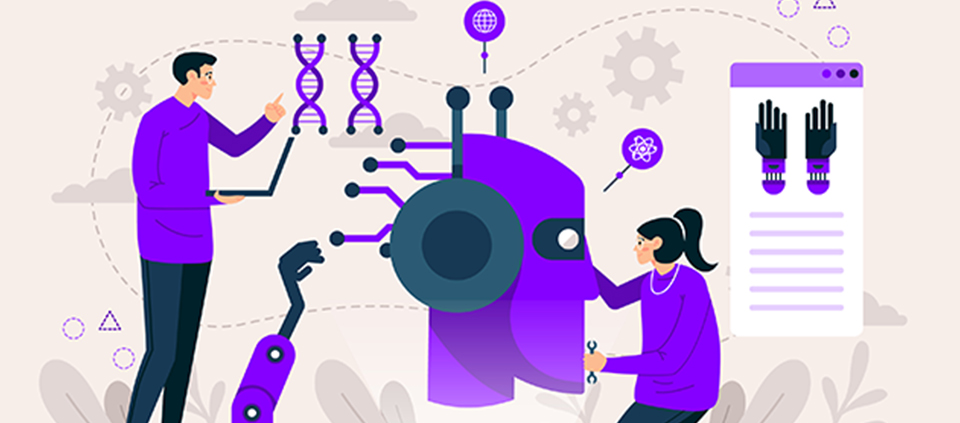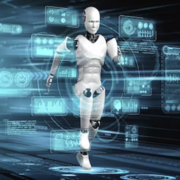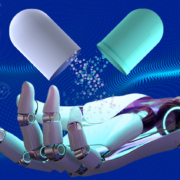What Is Adaptive AI and What Could it Mean for AI Startups?
The next major evolutionary step in AI and machine learning will be the large-scale implementation of “adaptive AI.” What exactly is “adaptive AI,” and what will the leap to this new technology mean for fledgling AI companies and startups?
The power of AI is its ability to take in and interpret quite large volumes of data and then accurately generate insights and predictions that can lead to smarter decision-making by the humans leveraging the algorithms. As the name implies, adaptive AI systems take that ability to the next level by being able to “adapt” or continuously respond to new as it becomes available and modify its outputs accordingly.
Adaptive AI dynamically incorporates new data from its operating environment to generate more accurate insights on a real-time basis. It is increasingly regarded as artificial intelligence’s next evolutionary stage. By incorporating a more responsive learning methodology, such as agent-based modeling (ABM) and reinforcement learning (RL) techniques, adaptive AI systems are more reactive to the changing world around them and can thus more seamlessly adapt to new environments and circumstances that were not present during the earlier stages of the AI system’s development.
This kind of almost instantaneous adaptability is certain to prove critical over the coming years, during which the likes of the Internet of things (IoT) and autonomous vehicles are expected to expand greatly in popularity. Such applications must continuously consume massive quantities of data to reflect ongoing changes in the external environment in real time.
Well-known IT Analyst Erick Brethenoux observed in October 2022. “Adaptive AI systems aim to continuously retrain models or apply other mechanisms to adapt and learn within runtime and development environments—making them more adaptive and resilient to change.”
Advancements in adaptive AI will also greatly improve AI applications in healthcare and will likely save lives. The ability to consistently analyze data related to thousands, if not millions, of patient symptoms and vital signs can enable adaptive AI systems to optimize the clinical recommendations they produce.
Over the long term, adaptive AI delivers faster, more accurate outcomes, which should mean that more meaningful insights can be gleaned by any enterprise relying on AI for intuitive decision-making.
IT research and consulting group Gartner has predicted that by 2026, enterprises that have adopted AI engineering practices to build and manage adaptive AI systems will outperform their peers in the time and the number of processes it takes to operationalize AI models by at least 25 percent.
All of this speaks volumes to the opportunities for AI startups that focus their R&D efforts on adaptive AI.
How BigRio Helps Bring Advanced AI Solutions to the Marketplace
Adaptive AI, indeed, will be one of the next big leaps forward in artificial intelligence and machine learning. At BigRio, we are at the leading edge of helping such advancements in AI get to market.
BigRio prides itself on being a facilitator and incubator for these kinds of revolutionary breakthroughs in AI.
In fact, we like to think of ourselves as a “Shark Tank for AI.”
If you are familiar with the TV series, then you know that, basically, what they do is hyper-accelerate the most important part of the incubation process – visibility. You can’t get better visibility than getting out in front of celebrity investors and a TV audience of millions of viewers. Many entrepreneurs who have appeared on that program – even those who did not get picked up by the Sharks – succeeded because others who were interested in their concepts saw them on the show.
At BigRio, we may not have a TV audience, but we can do the same. We have the expertise to not only weed out the companies that are not ready for the market, as the sharks on the TV show do, but also mentor and get those that we feel are readily noticed by the right people in the AI investment community.
You can read much more about how AI is redefining the world in my new book Quantum Care: A Deep Dive into AI for Health Delivery and Research. While the book’s primary focus is on healthcare delivery, it also takes a deep dive into AI in general, with specific chapters on advances such as adaptive AI.
Rohit Mahajan is a Managing Partner with BigRio. He has a particular expertise in the development and design of innovative solutions for clients in Healthcare, Financial Services, Retail, Automotive, Manufacturing, and other industry segments.
BigRio is a technology consulting firm empowering data to drive innovation and advanced AI. We specialize in cutting-edge Big Data, Machine Learning, and Custom Software strategy, analysis, architecture, and implementation solutions. If you would like to benefit from our expertise in these areas or if you have further questions on the content of this article, please do not hesitate to contact us.









